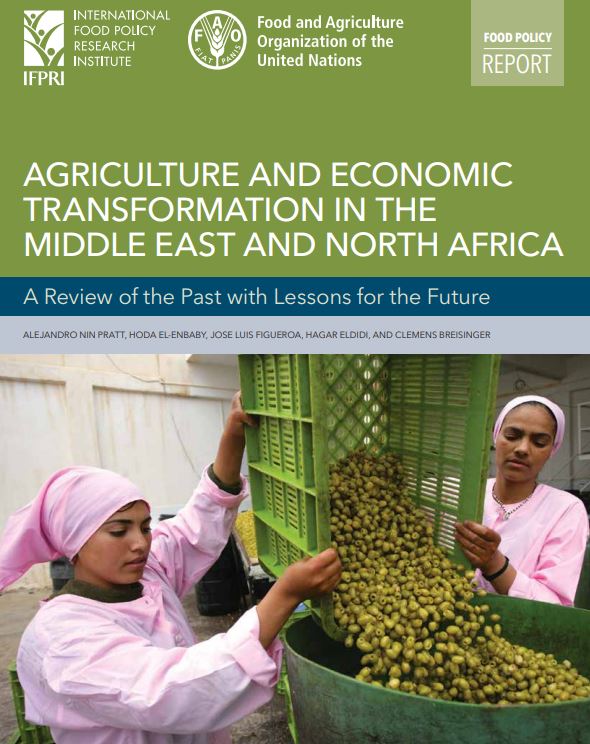22 August 2018. A recent IFPRI report, Agriculture and Economic Transformation in the Middle East and North Africa: A Review of the Past with Lessons for the Future, authored by Alejandro Nin Pratt, Hoda El-Enbaby, Jose Luis Figueroa, Hagar Eldidi, and Clemens Breisinger, offers a comprehensive view of the drivers, constraints, and social implications of agricultural development in the region, and explores possible starting points for new sustainable development strategies.
This study considers both regional and individual country case studies while focusing on themes that impact agricultural and economic production, like food and water security, employment, and poverty reduction. The researchers also consider how national and regional policies have shifted growth and altered the economic landscape of the region.
In low-and middle-income countries, the report says, labor productivity in agriculture has continued to fall behind that of other sectors, indicating that the process of structural transformation has not been smooth. This further exacerbates the wealth gap, particularly between rural and urban populations, and demonstrates the ineffectiveness of expensive policies focused on subsidies, which have failed to deliver the needed productivity increase.
Water usage is likely to emerge as an increasingly large threat to those living in the region, as 15 MENA countries already face extremely high levels of baseline water stress. Failure to incentivize more efficient water use may bring dire economic and environmental consequences.
Related:
Mediterranean Innovation Partnership Network for Youth and Entrepreneurship and Technology Transfer in Agro-food Sector: The Role of Research and Innovation Systems
This study considers both regional and individual country case studies while focusing on themes that impact agricultural and economic production, like food and water security, employment, and poverty reduction. The researchers also consider how national and regional policies have shifted growth and altered the economic landscape of the region.
 |
| 28 August 2018: Visit of @ShenggenFan (IFPRI) to the ICARDA Cairo office |
Mediterranean Innovation Partnership Network for Youth and Entrepreneurship and Technology Transfer in Agro-food Sector: The Role of Research and Innovation Systems


No comments:
Post a Comment